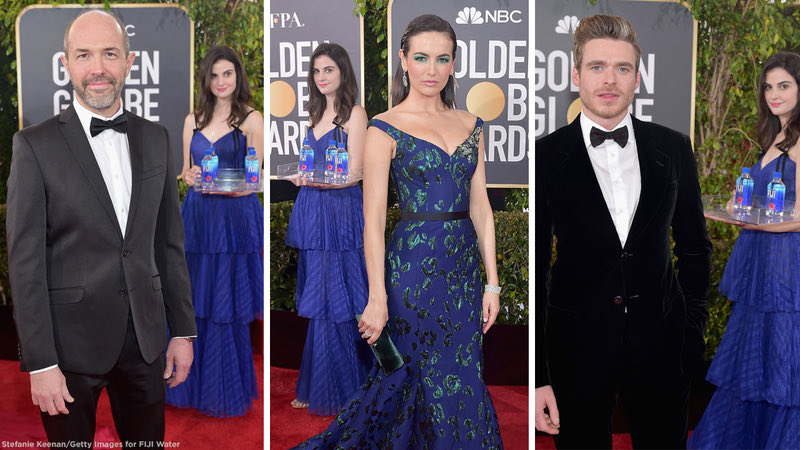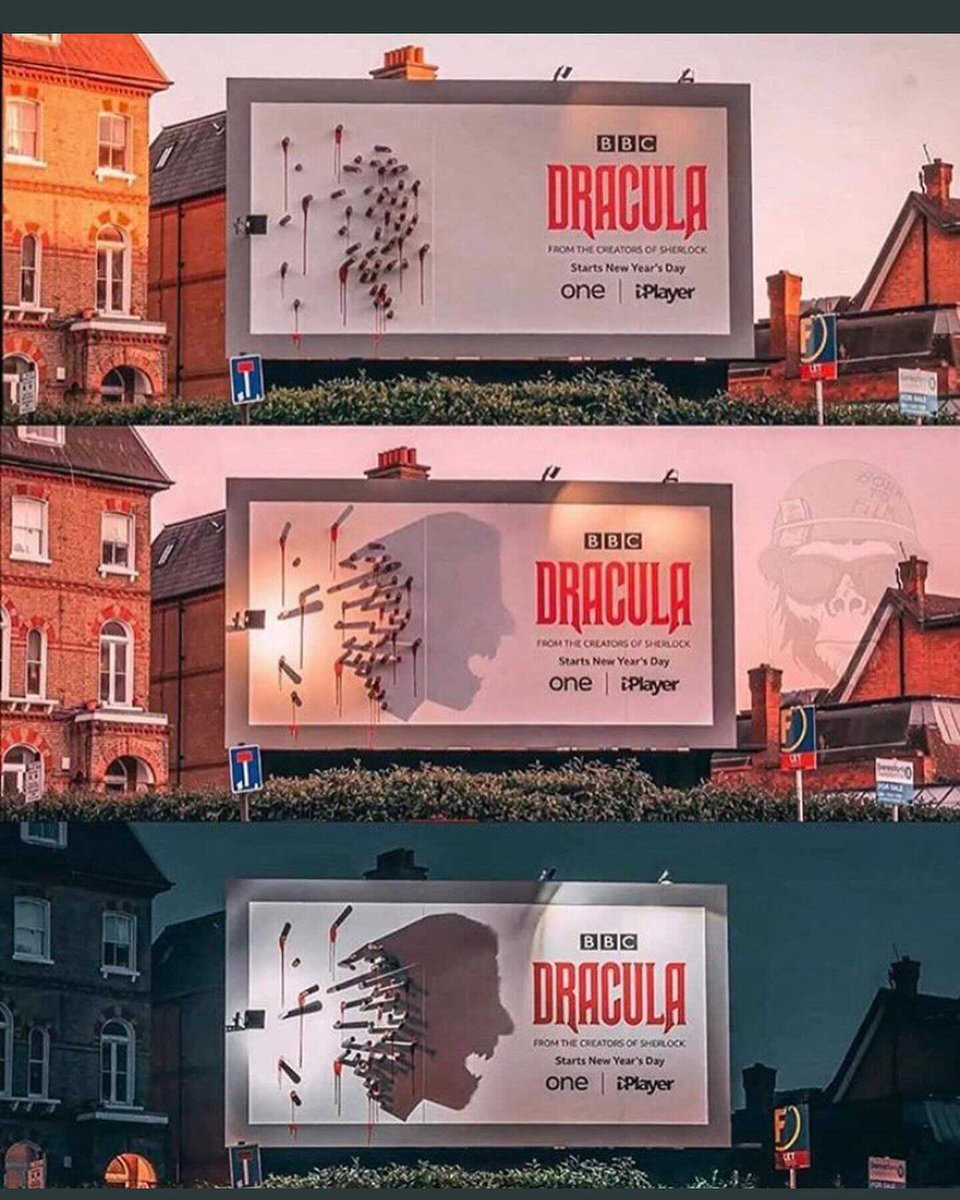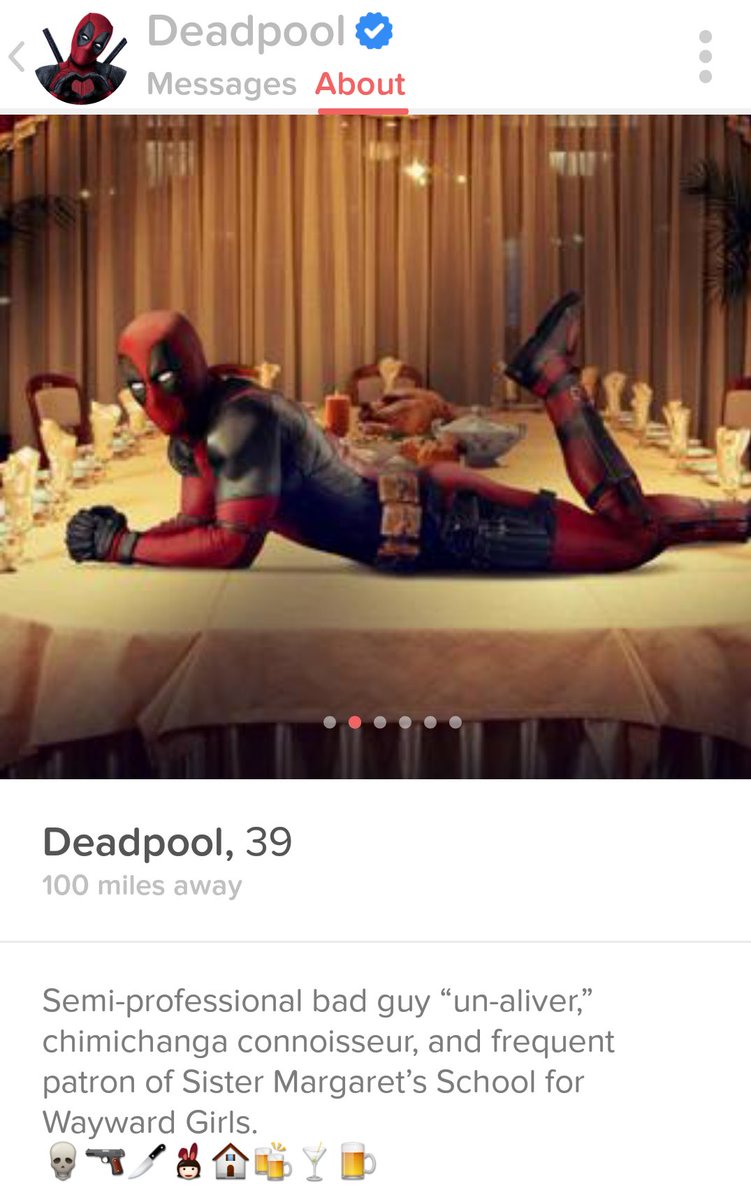
Guerrilla marketing is fascinating.
THREAD: 10 genius guerrilla marketing campaigns (to spark your marketing creativity):
THREAD: 10 genius guerrilla marketing campaigns (to spark your marketing creativity):
The Blair Witch Project
Prior to its release, the movie's creators released credible-looking "missing" posters to stoke intrigue around the legend.
The Blair Witch Project had a total budget of less than $500,000 and ended up with almost $250 million in box office revenues.
Prior to its release, the movie's creators released credible-looking "missing" posters to stoke intrigue around the legend.
The Blair Witch Project had a total budget of less than $500,000 and ended up with almost $250 million in box office revenues.

The IHOP Rebrand
The famous pancake chain released a series of videos indicating they were changing their name to IHOB (International House of Burgers).
The ploy worked.
It drove millions of social media impressions and they sold 4x as many burgers in the weeks that followed.
The famous pancake chain released a series of videos indicating they were changing their name to IHOB (International House of Burgers).
The ploy worked.
It drove millions of social media impressions and they sold 4x as many burgers in the weeks that followed.

GoldToe Gets Bullish
In the middle of New York Fashion Week, GoldToe underwear put a pair of its (size XXXL) underwear in an unlikely place to steal the spotlight for their 2010 line launch: on the Wall Street Bull.
The campaign went completely viral.
Very bullish.
In the middle of New York Fashion Week, GoldToe underwear put a pair of its (size XXXL) underwear in an unlikely place to steal the spotlight for their 2010 line launch: on the Wall Street Bull.
The campaign went completely viral.
Very bullish.

King Kong’s Beach
In advance of the launch of a new King Kong theme park attraction, Santa Monica residents and tourists woke up one morning to find huge footprints (and a crushed vehicle) in the sand on Santa Monica Beach.
It went wild on social media, with millions of hits.
In advance of the launch of a new King Kong theme park attraction, Santa Monica residents and tourists woke up one morning to find huge footprints (and a crushed vehicle) in the sand on Santa Monica Beach.
It went wild on social media, with millions of hits.

Fiji Water Photobombs
The Golden Globes are supposed to be about the celebrities on the red carpet—but in 2019, someone else stole the show.
"The Fiji Water Girl"
The woman handing out refreshing Fiji Water strategically photobombed photos and was an instant viral success.
The Golden Globes are supposed to be about the celebrities on the red carpet—but in 2019, someone else stole the show.
"The Fiji Water Girl"
The woman handing out refreshing Fiji Water strategically photobombed photos and was an instant viral success.

Red Bull Gives You Wings
Red Bull's sponsorship of Felix Baumgartner's record-setting jump was far from cheap, with an estimated price tag of ~$30 million.
But with >45m views, hundreds of millions of impressions, and an estimated $500m in new sales, it was surely a success.
Red Bull's sponsorship of Felix Baumgartner's record-setting jump was far from cheap, with an estimated price tag of ~$30 million.
But with >45m views, hundreds of millions of impressions, and an estimated $500m in new sales, it was surely a success.

Bounty's Massive Messes
Bounty installed massive messes throughout NYC in a creative awareness campaign.
From an enormous, knocked-over coffee cup to a giant melted popsicle, Bounty's campaign took over social media and cut through all the marketing noise in their category.

Bounty installed massive messes throughout NYC in a creative awareness campaign.
From an enormous, knocked-over coffee cup to a giant melted popsicle, Bounty's campaign took over social media and cut through all the marketing noise in their category.


The Dracula Billboard
As a promotion for its new Dracula show, BBC put up a billboard with an ingenious, creative twist.
Strategically-placed bloody stakes that transformed the billboard at night—revealing a shadow of Count Dracula himself.
As a promotion for its new Dracula show, BBC put up a billboard with an ingenious, creative twist.
Strategically-placed bloody stakes that transformed the billboard at night—revealing a shadow of Count Dracula himself.

Deadpool Tinder Account
Marvel is known for its marketing genius, and the efforts for the Deadpool launch in 2012 were no exception.
Some Tinder users found the masked character on their list of potential matches.
Swipe right? You were taken to a page to buy tickets.
Marvel is known for its marketing genius, and the efforts for the Deadpool launch in 2012 were no exception.
Some Tinder users found the masked character on their list of potential matches.
Swipe right? You were taken to a page to buy tickets.

The Taco Liberty Bell
On April 1, 1996, Taco Bell took out ads in 6 major newspapers to announce an acquisition: The Liberty Bell.
The prank cost Taco Bell $300K, but was estimated to have generated over $25 million in free publicity.
Sales spiked in the weeks that followed.
On April 1, 1996, Taco Bell took out ads in 6 major newspapers to announce an acquisition: The Liberty Bell.
The prank cost Taco Bell $300K, but was estimated to have generated over $25 million in free publicity.
Sales spiked in the weeks that followed.

What is the greatest guerrilla marketing campaign of all time?
I’m going down the rabbit hole…
Join me: Follow along @SahilBloom as I explore my curiosity and share my learnings along the way.
I’m going down the rabbit hole…
Join me: Follow along @SahilBloom as I explore my curiosity and share my learnings along the way.
It appears there is a lot of debate over whether all 10 of these qualify as guerrilla marketing — in any case, just enjoy them for whatever they are.
Also, don’t be this cat.
• • •
Missing some Tweet in this thread? You can try to
force a refresh






